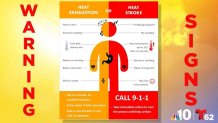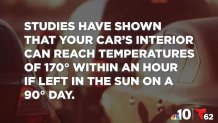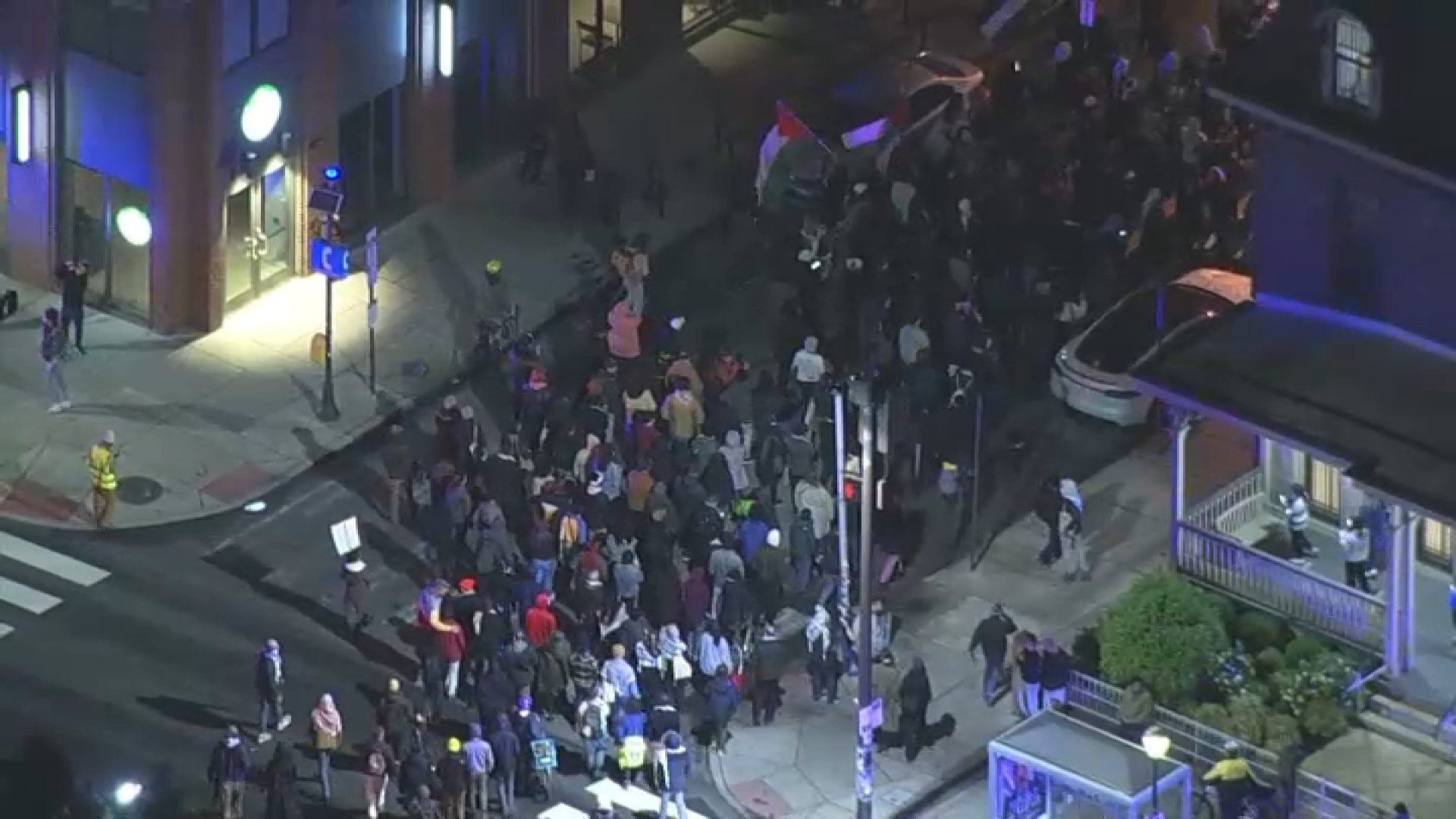Hundreds of people die each year in the United States due to heat-related illnesses, mostly children and the elderly, according to the Centers for Disease Control and Prevention.
The threat is greatest during excessive heat watches and warnings. Many of the deaths, however, can be prevented as long as people take the proper precautions.
The National Weather Service issues an excessive heat watch to give people time to prepare for potentially dangerous heat. According to the NWS, an excessive heat watch is when conditions can cause excessive heat in the next 12 to 48 hours.
An excessive heat warning/advisory is when excessive heat is occurring, is imminent, or has a very high probability of occurring in the next 36 hours, according to the NWS. These conditions can be a threat to life.
Get Philly local news, weather forecasts, sports and entertainment stories to your inbox. Sign up for NBC Philadelphia newsletters.
With that in mind, we have created a guide to surviving dangerous heat.
Take Precaution
Heat contributes to more than 600 deaths each year in the United States according to the CDC. The elderly and children are the most at risk of overheating. People with heart conditions or other chronic illnesses are also at risk.
Heat stroke is common and can be deadly. The following are warnings signs of heat stroke according to the CDC:
- Throbbing Headache
- No sweating
- Body Temperature above 103 degrees
- Red, hot, dry skin
- Nausea or vomiting
- Rapid, strong pulse
- Loss of consciousness
If you or someone has these signs, call 911 immediately. The CDC recommends trying to cool a person with symptoms while help is on the way.
The following are signs of heat exhaustion, according to the CDC:
- Faintness or dizziness
- Excessive sweating
- Cool, pale, clammy skin
- Nausea or vomiting
- Rapid, weak pulse
- Muscle cramps
If someone has these symptoms, they are advised to get to a cooler, air-conditioned place. If fully conscious, they should be given water and a cool shower or cold compress.

Never Leave Children In Car
Local
Breaking news and the stories that matter to your neighborhood.
Never leave children in a car unattended under any circumstance. Children’s bodies are smaller and heat can’t pass through their bodies as easily as adults, according to Dr. Julia DeJoseph of Delaware Valley Community Health.
Cars can get extremely hot in a matter of minutes, which can cause death, even with a window cracked open, according to the CDC. The CDC also gives the following tips to ensure a child isn't left in a car:
- To remind yourself that a child is in the car, keep a stuffed animal in the car seat. When the child is buckled in, place the stuffed animal in the front with the driver.
- When leaving your car, check to be sure everyone is out of the car. Do not overlook any children who have fallen asleep in the car.

Hydrate
Drinking lots of water is key to keeping your body cooled down, though the CDC recommends trying to avoid cold water, as it can cause cramps.
The CDC says to avoid alcohol and sugary drinks. The CDC also says that if you're sweating, you're likely losing salts. So, drink a sports drink or salt tablet to replenish your salt levels.
Wear Sunscreen
According to the CDC, sunburn can cause you to become dehydrated and makes it harder for your body to cool down. Apply sunscreen with an SPF of 15 or above 30 minutes before heading out the door and reapply as recommended in the product's instructions.
Find a Cool Location
If possible, limit your outdoor activities as they will give you more exposure to what can be dangerous heat.
If you can, stay in a cool home, work in a cool space or visit a cooling center.
Take advantage of pools, and spray grounds.
Working Outside?
- Bring cool water and pack frozen water bottles so they can thaw throughout the day
- Use wet wash cloths with cool water to cool body temperature
No Central Cooling System?
- Open the windows to let fresh air circulate.
- Do not rely on just a fan to keep you cool. If you’re using a fan, open the windows to allow fresh air to circulate. According to the City of Philadelphia, brick row homes with black rooftops absorb heat, which can cause the temperature inside to be equal to the temperature outside if the window is closed.
How to Dress?
If possible, wear fabrics that allow easy airflow around your body.
Need Help Paying Electric Bill?
Pennsylvania, Delaware and New Jersey all have payment assistance programs.
See an unhoused person in need of shelter?
Call the City of Philadelphia's homeless outreach line: 215-232-1984
Have Pets?
- Do not leave pets outside unattended for long periods of time
- Ensure they have a cool, shaded space
- Try to walk them in shaded areas as hot surfaces like concrete, metal, pavement, and asphalt can burn their foot pads
Be prepared for your day and week ahead. Sign up for our weather newsletter.



